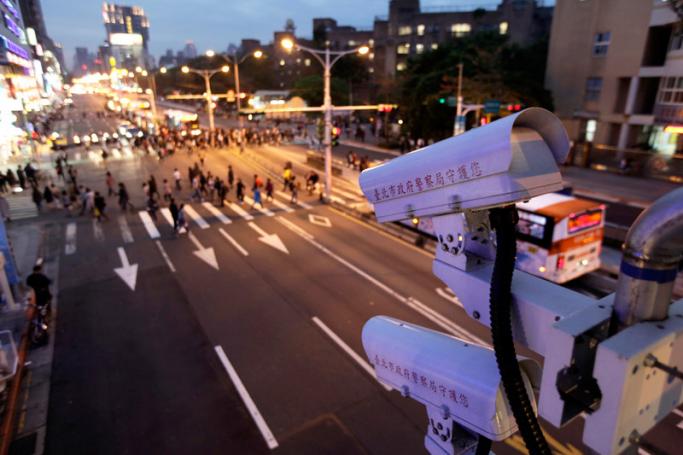China today hosts a complex web of surveillance systems to keep track of its citizens, both at home and abroad. Not only does the Chinese state operate multiple systems to maintain surveillance on its citizens, it also tasks private companies working in China to further enhance its network of human and technical spies.
The latest in the series of such instances with diplomatic overtones is the case of Yang Henjun, a naturalised Australian citizen who was detained in Guangzhou in January 2019. Yang, an Australian writer and academic had been arrested by the police on charges of being a spy. His trial, delayed for over a year has become the cause of another diplomatic row between China and Australia, whose bilateral relations have been at an all-time low, ever since Australia took it upon itself to champion to the world that China was the originator of the coronavirus.
Yang was supposed to go on trial in January 2021, but this has been delayed to April by Chinese authorities. Information about the trail and its delay has been provided by Feng Chongyi, a Professor at University of Technology in Sydney. Feng claimed that Chinese authorities had told him that the trial had been delayed as the case was “serious and complicated”. The real reason for the delay according to sources is that Yang has not confessed to any wrongdoing till date. In September 2020, Yang sent a message to his family that he was innocent and would not confess to something he had never done. Yang last received consular assistance from Australian officials on 17 December 2020. Apart from Yang Henjun, television anchor Cheng Lei, has also been under detention in China since August 2020 on suspicion of “criminal activity endangering China’s national security”.
Yang Henjun, is a 55-year old author and blogger, who has been advocating online for greater democracy in China. In January 2019, he was detained at Guangzhou airport when he after disembarking a flight from New York. Interestingly, prior to immigrating to Australia in the 1990s, Yang had worked with the Ministry of Foreign Affairs in China. In 2011, he sent a letter to Feng Chongyi in which he admitted that he had worked for the Ministry of State Security in Washington and Hong Kong.
While Yang Henjun’s case has drawn attention because Australia has taken up his case with China diplomatically, scores of other Chinese nationals, including minority Uyghur living abroad face surveillance and find their families in China being threatened to cooperate with the Chinese state. Recently, another interesting fact on this subject came to light. IPVM, a surveillance industry publication shared information with The New York Times about Alibaba’s website for its cloud computing business showing how clients could use its software to detect the faces of Uyghurs and other ethnic minorities within images and videos. This feature was built into Alibaba software that helps web platforms monitor digital content for material related to terrorism, pornography and other red-flag categories. As has become well known, all Chinese companies are bound by law to work for the Chinese state and provide services, including those which assist the Chinese state in the monitoring and persecution of the Uyghur minorities. When the NYT asked Alibaba about the tool, the company edited its website and removed the references to Uyghur and minority faces. Alibaba has not revealed why it created the software in the first place, even if it was meant for testing.
Alibaba had not been alone in China in testing tools for automated racial profiling. Kingsoft Cloud, another Chinese cloud provider, had described on its website technology that could use an image of a face to predict “race,” among other attributes. According to a page on Kingsoft Cloud’s website that was discovered by IPVM and shared with the NYT, the company’s software could evaluate whether a person’s race was “Uyghur” or “non-Uyghur.”When the NYT asked Kingsoft Cloud about the software, the company removed those pages from its website. In a written statement, Kingsoft Cloud said that the tool in question had never been sold to customers and that it had not been able to distinguish Uyghur faces. The statement said that the software had slipped past the company’s internal review processes and that the company was evaluating those mechanisms to ensure proper oversight.
Surveillance technology has been crucial to China’s efforts to monitor and track ethnic minorities within China. For instance, the Uyghurs in Xinjiang are ethnically and racially different from the majority Han population and do stand out thus making it easier for software to pick out their faces. The Washington Post has reported that Huawei, another Chinese technology giant, had tested software that could automatically alert the police when its surveillance cameras detected Uyghur faces. Notably, the WP report led Antoine Griezmann, the French soccer star, to cut ties with the company in his capacity as a brand ambassador.
For the uninitiated, it may be mentioned that China's facial recognition system logs nearly every single citizen inside China, with a vast network of cameras across the country. A 2019 leak revealed that pervasive China's surveillance tools provide more than 6.8 million records of citizens in a single day. That China uses this technology to monitor the Uyghurs was made clear in March 2020 when a bipartisan group of seventeen Senators wrote a letter to then Secretary of State Mike Pompeo stating that "China uses facial recognition to profile Uyghur individuals, classify them on the basis of their ethnicity, and single them out for tracking, mistreatment, and detention."
Technology is undoubtedly an enabler in many respects, but in the case of China it is enabling the Chinese state and the Communist Party of China to track, monitor and persecute its own citizens, in particular its ethnic minorities. Chinese citizens have reasons for concern.
Lee Chen is the pseudonym of a writer who covers Asian and world affairs












